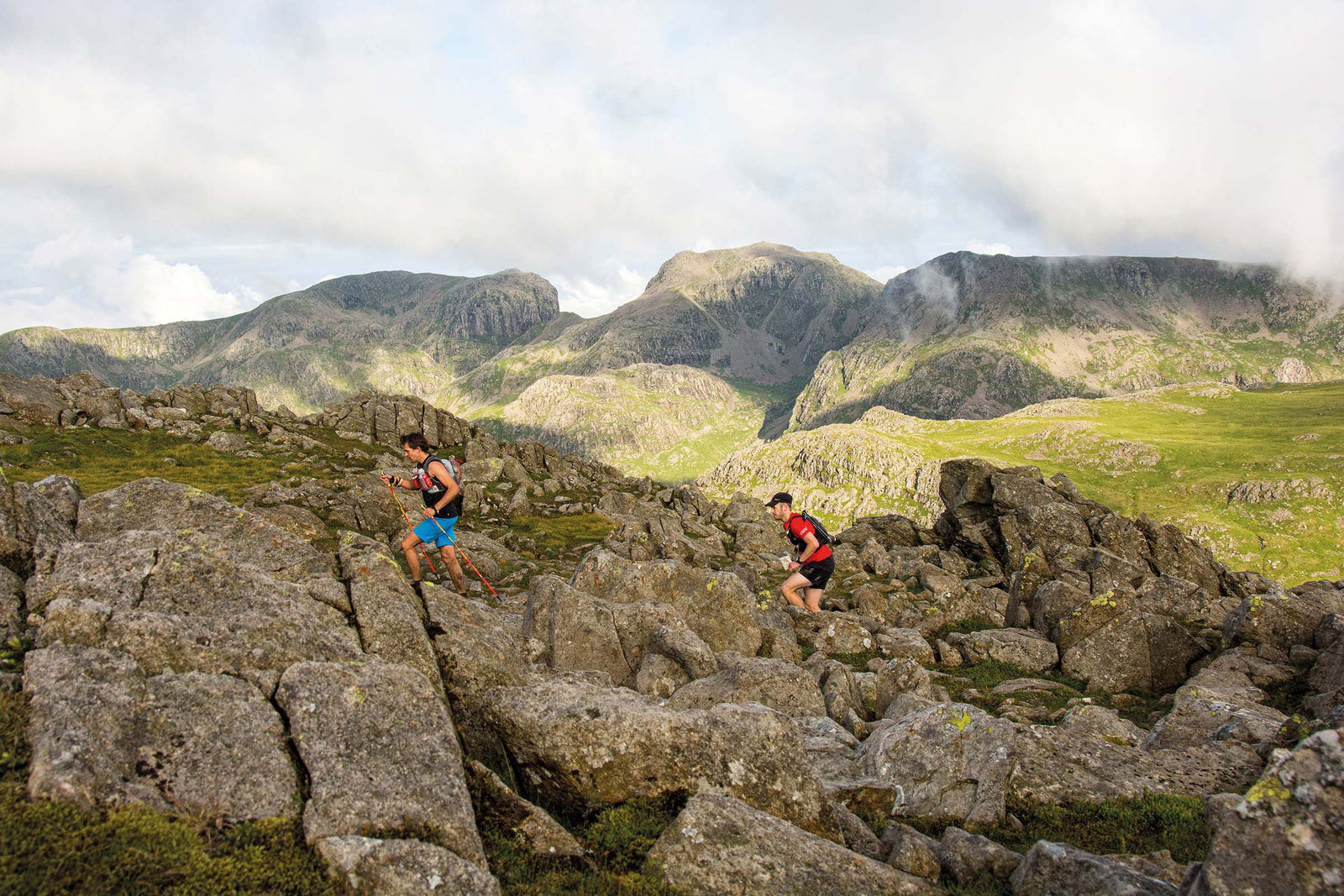Your Cart is Empty
Menu

Niggle dodging: how to train for ultramarathons without getting injured
June 27, 2023 3 min read

The Bob Graham with Charlie Sproson. © Mick Kenyon
By GB ultrarunner, UK Athletics coach and In It for the Long Run author Damian Hall, who's been uninjured for six years (touch a teabag).
Training plan
A structured training plan that builds volume progressively, with carefully placed intensity, while allowing for adaptations to take place, is key (but then I would say that, because I'm a coach). Paradoxically, knowing when not to obey the plan and instead listen to your body (ie, take a bonus rest day) can be crucial too. Studies show, rather than 30 milers with 10K vert or 10x 3min hill reps, consistency is the key thing. Often doing a little less is what helps you do more in the, er, longer run.
Easy lovin'
Generally follow the 80/20 rule, with roughly 80 per cent of runs feeling 'easy' (conversational pace). Running easy helps increase capillaries, mitochondria and Type I muscle fibre-recruitment. Not only are you less tired on your next run, but you've stressed your body less, especially those vulnerable lower-leg tendons. Running fast is a bunch of stress, internally and externally. It's worth doing sometimes, but in a calculated way rather than ad hoc running in the troublesome 'middle' zone. Running easy helps build volume more safely, leading to those long-term aerobic gains and is just more enjoyable. Plus you'll be less sweaty.

At the Old Nags Head, Edale, with my children’s XR flag. © inov-8.com_Dave MacFarlane
Strong bum tactics
Strength work is proven to benefit the, er, more mature athlete and help improve running economy. Anecdotally, it significantly improves leg fatigue and injury resistance, too. I've been strength training for years, sometimes just one or two 30-minute sessions a week and I feel all the better for it (even if I still have weedy arms).
Zzzzzzzzzzzzs
Sleep has become fashionable, for good reason. Christie Aschwanden's excellent book Good Too Go analyses all the popular recovery tactics and gimmicks and concludes that by far the most effective one is good, old-fashioned shuteye. When we snooze, the human growth hormone, which repairs muscle and bones, is released. Insufficient sleep is likely to lead to higher levels of the inflammatory marker C-reactive protein, the stress hormone cortisol, and your muscles’ ability to store glycogen. Plus research has linked injury risk with insufficient pillow time. The old adage that 'you snooze, you lose' couldn't be more wrong.
All The Nosh
As US super coach and super human David Roche says, eat enough always. Yes, top athletes don't carry much excess body about. But it's easy to fall into the trap of restricting calories, thinking lighter = faster. Several studies show how low energy availability or Relative Energy Deficient in Sport (RED-S) can negatively effect nearly every physiological function and increase injury risk. Female athletes commonly lose their periods and bone strength leading to stress fractures, while male athletes lose testosterone (we definitely want testosterone), and in both cases cortisol rises. Even if things don't go that badly, without adequate fuelling, our body simply can't make the key physiological adaptions from training and we regress. Nosh is king/queen. Check our Renee McGregor's essential, More Fuel You for more.

Tea at Tan Hill. © inov-8.com_Dave MacFarlane
Preemptive prehab
I have a runner friend who treats the physio like a dentist. He only goes with great reluctance, two months after an issue (and even then tries to get an NHS referral so he doesn't have to pay). I see a local sports therapist pre-emptively, every four weeks. I get an MOT and if nothing's obviously wonky, an ouchily deep leg massage to reset tired and tight muscles and tendons. I foam roll or use a muscle gun semi-regularly too. It's easy for some muscle tightness to go undetected and turn into something. But roll around on the floor grunting and groaning a bit and there's no knowing how many issues are dissipated before they even exist.
Remove harmful lifestyle things
As well as genetics and perhaps a spot of luck, consider any harmful aspects of your lifestyle you could remove or reduce. Chairs are evil and are likely the reason most physios tell most runners they have weak glutes (try a standing desk). Also consider booze intake, which interrupts sleep (so less growth hormone). Also consider what life stresses, at work and home, are going on around training, because they will have an impact. If divorce papers arrive the same day as a planned 25 miler or the death of a favourite pet gerbil, take a day off. Think of the long game.
Join our mailing list and save 25% off our books!
Sign up to be the first to find out about new books, pre-order and special edition offers, author events, freebies, and to receive 25% off your orders.









